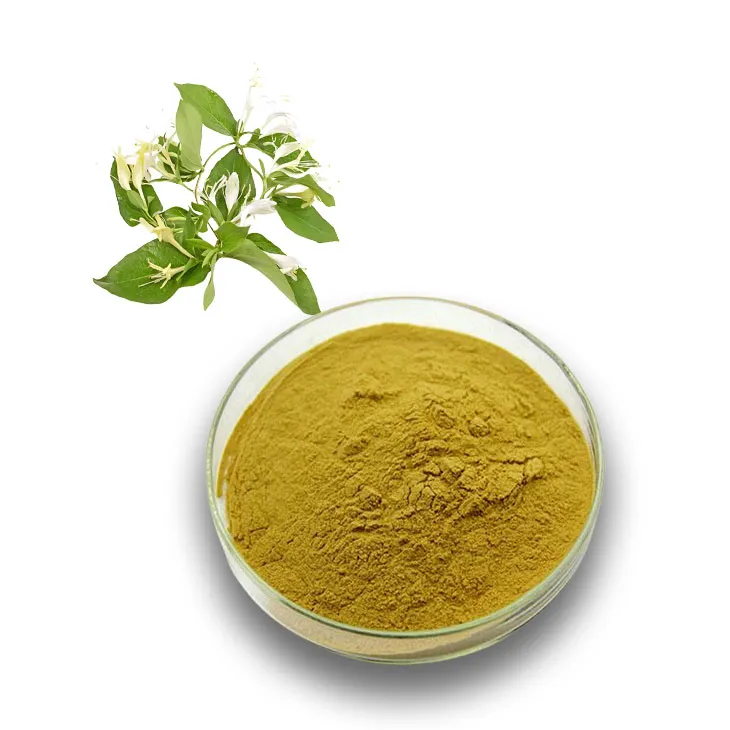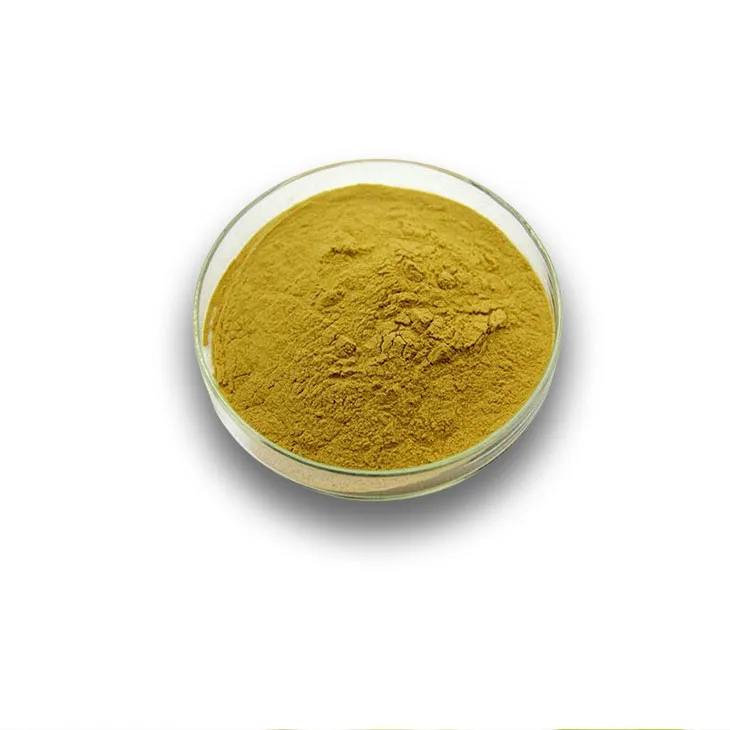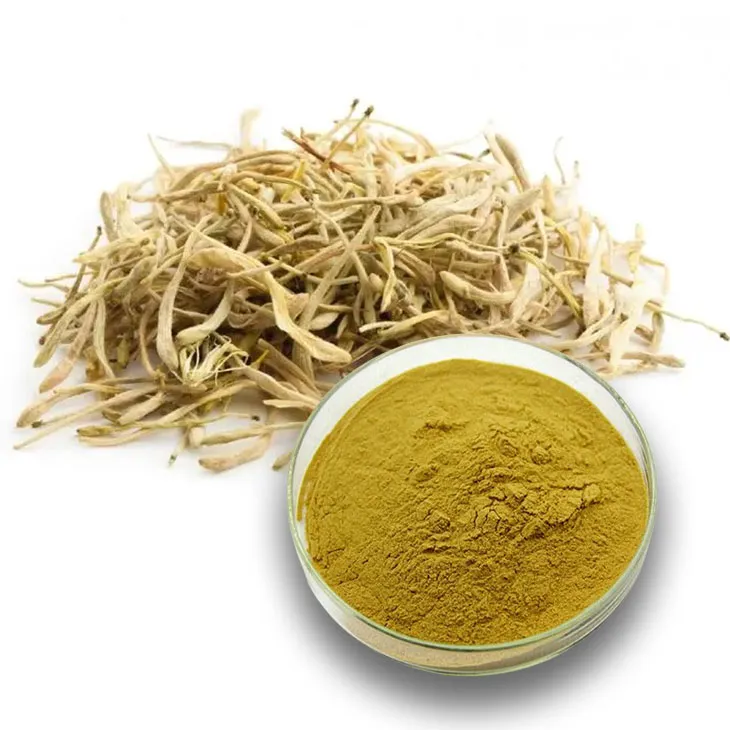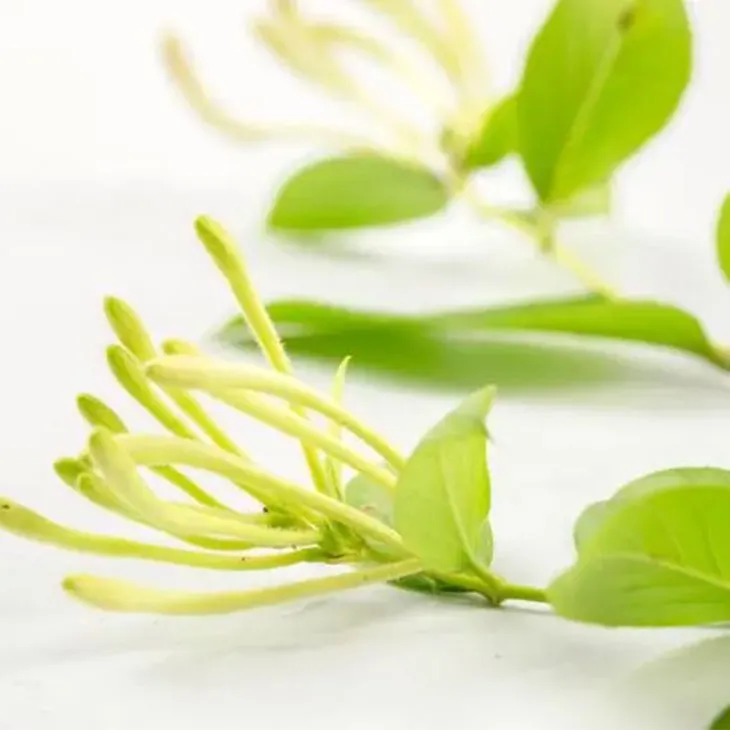- 0086-571-85302990
- sales@greenskybio.com
Which kind of honeysuckle pollen should you use?
2024-12-19

Introduction
Honeysuckle Pollen is a natural wonder that has been attracting increasing attention due to its potential health and other benefits. However, with the variety of options available in the market, it can be quite challenging to decide which Honeysuckle Pollen is the right one for you. This article aims to provide comprehensive guidance on making an informed choice when it comes to Honeysuckle Pollen.

The Importance of Purity
Purity is a crucial factor when considering honeysuckle pollen. High - quality honeysuckle pollen should be as pure as possible, free from contaminants and additives.
Contaminants
Contaminants can come in various forms. For example, environmental pollutants such as heavy metals may find their way into the pollen if the collection process is not carried out carefully. These contaminants can pose a risk to human health if consumed. Therefore, it is essential to ensure that the honeysuckle pollen you choose has been tested for and is free from such pollutants.
Additives
Some products in the market may contain additives. These can be added for various reasons, such as to enhance the taste, improve the shelf - life, or give a false impression of higher quality. However, when it comes to honeysuckle pollen, pure, unadulterated pollen is often the best choice. Additives may interfere with the natural properties of the pollen or may cause allergic reactions in some individuals.

The Role of Honeysuckle Species
Different species of honeysuckle can produce pollen with distinct characteristics. One of the well - known species is Lonicera japonica.
Lonicera japonica Pollen
Lonicera japonica pollen may have unique properties compared to other species. It could potentially have different nutritional profiles or medicinal effects. For instance, it may contain a specific combination of vitamins, minerals, and bioactive compounds that are different from those in other honeysuckle species. This difference can influence its suitability for various applications. For health - related uses, the specific chemical composition of Lonicera japonica pollen might make it more or less effective depending on the desired health outcome.
Other Honeysuckle Species
There are other species of honeysuckle as well, and each may offer its own set of qualities. Some may be more suitable for certain environmental conditions, which in turn can affect the quality and properties of their pollen. When choosing honeysuckle pollen, it is important to be aware of the species and understand how its unique characteristics may impact your use. For example, if you are using the pollen for a particular type of traditional medicine, certain species may be more preferred based on historical usage and known medicinal properties.

The Form of Honeysuckle Pollen
Honeysuckle pollen can be found in different forms, mainly powder and capsules. Each form has its own advantages and considerations.
Powdered Pollen
Powdered pollen offers a great deal of flexibility in usage. It can be easily incorporated into various recipes, such as smoothies, baked goods, or herbal teas. This form allows for precise dosing, as you can measure out the exact amount of pollen you need according to your requirements. However, powdered pollen may require more careful handling as it can be more easily spilled or contaminated. Also, it may have a shorter shelf - life compared to capsules if not stored properly.
Capsules
Capsules are a convenient option for many people. They are pre - measured, which means you don't have to worry about accurately measuring the pollen each time you use it. Capsules also protect the pollen from environmental factors such as air and moisture, which can help to preserve its quality and extend its shelf - life. On the other hand, capsules may limit your ability to adjust the dosage as easily as with powdered pollen. And some people may find it difficult to swallow capsules.

Brand Reputation
The reputation of the brand is an important consideration when choosing honeysuckle pollen.
Quality Control
Reputable brands usually follow strict quality control standards. They are likely to have proper procedures in place for collecting, processing, and testing the honeysuckle pollen. This ensures that the pollen meets certain quality benchmarks. For example, they may conduct regular tests to check for purity, potency, and the presence of any harmful substances. Brands that invest in quality control are more likely to provide a consistent and reliable product.
Information Transparency
A good brand will also be transparent about the pollen's source, composition, and recommended usage. They should be able to provide detailed information about where the honeysuckle is sourced from, which species are used, and how the pollen is processed. This information is crucial for consumers to make an informed decision. If a brand is evasive or provides little information, it could be a red flag indicating that they may not be as reliable or trustworthy.
Conclusion
In conclusion, choosing the right honeysuckle pollen requires careful consideration of several factors. The purity of the pollen, the species of honeysuckle, the form of the pollen, and the brand reputation all play important roles. By taking these aspects into account, you can select the most appropriate honeysuckle pollen for your specific needs, whether it is for health purposes, culinary uses, or other applications.
FAQ:
Q1: How can I tell if the honeysuckle pollen is pure?
To determine the purity of honeysuckle pollen, you can look for several indicators. Firstly, check if there are any visible impurities in the pollen. High - quality pollen should be clean and free - flowing. Secondly, look at the product label. If it mentions the use of additives or preservatives, it may not be pure. Also, a reliable brand is more likely to offer pure pollen as they often have strict quality control measures in place. Some brands may even provide certificates of purity or authenticity.
Q2: What are the main differences between Lonicera japonica pollen and other honeysuckle pollen?
The main differences can lie in their chemical composition, nutritional content, and potential health benefits. Lonicera japonica pollen may have unique compounds that are not present in other species' pollen or may have them in different proportions. These differences can lead to variations in taste, aroma, and how the body responds to it. For example, it might have a different effect on the immune system or digestive process compared to other honeysuckle pollen. Additionally, the physical characteristics such as color, texture, and size of the pollen grains may also vary.
Q3: Are there any side effects of using honeysuckle pollen?
While honeysuckle pollen is generally considered safe for most people, some individuals may experience side effects. Allergic reactions are the most common concern. People who are allergic to honeysuckle or other related plants may have an allergic response to the pollen, which can include symptoms like sneezing, itching, hives, or in severe cases, difficulty breathing. Additionally, if the pollen is consumed in excessive amounts, it may cause digestive discomfort such as nausea, vomiting, or diarrhea. Pregnant or breastfeeding women should also consult a healthcare provider before using honeysuckle pollen products.
Q4: How should powdered honeysuckle pollen be stored?
Powdered honeysuckle pollen should be stored in a cool, dry place away from direct sunlight. An airtight container is essential to prevent moisture and air from spoiling the pollen. You can store it in the pantry or in a cupboard. If possible, keep the temperature consistent, preferably between 10 - 20 degrees Celsius. Storing it in the refrigerator can also be an option, but make sure it is well - sealed to avoid condensation. Do not store it near strong - smelling substances as the pollen can absorb odors.
Q5: Can I use honeysuckle pollen if I have a pollen allergy?
If you have a pollen allergy, it is best to avoid using honeysuckle pollen without first consulting a doctor. Even if your allergy is not specifically to honeysuckle, there is a risk of cross - reactivity. Honeysuckle pollen may share similar proteins or antigens with other plants that you are allergic to. A doctor can perform tests to determine if it is safe for you to use honeysuckle pollen products.
Related literature
- The Composition and Benefits of Honeysuckle Pollen"
- "A Study on the Different Species of Honeysuckle Pollen"
- "Quality Control in Honeysuckle Pollen Production"
- ▶ Hesperidin
- ▶ Citrus Bioflavonoids
- ▶ Plant Extract
- ▶ lycopene
- ▶ Diosmin
- ▶ Grape seed extract
- ▶ Sea buckthorn Juice Powder
- ▶ Fruit Juice Powder
- ▶ Hops Extract
- ▶ Artichoke Extract
- ▶ Mushroom extract
- ▶ Astaxanthin
- ▶ Green Tea Extract
- ▶ Curcumin
- ▶ Horse Chestnut Extract
- ▶ Other Product
- ▶ Boswellia Serrata Extract
- ▶ Resveratrol
- ▶ Marigold Extract
- ▶ Grape Leaf Extract
- ▶ New Product
- ▶ Aminolevulinic acid
- ▶ Cranberry Extract
- ▶ Red Yeast Rice
- ▶ Red Wine Extract
-
Lemon Extract
2024-12-19
-
Dan Shen Root Extract/Salvia Root Extract
2024-12-19
-
Phellodendron Extract
2024-12-19
-
Agaricus Blazei Extract
2024-12-19
-
Hericium erinaceus extract powder
2024-12-19
-
Peppermint Extract Powder
2024-12-19
-
Motherwort Extract
2024-12-19
-
Elderberry Extract
2024-12-19
-
Oat Straw Extract Powder
2024-12-19
-
Curcuma Longa Extract/Turmeric extract
2024-12-19





















